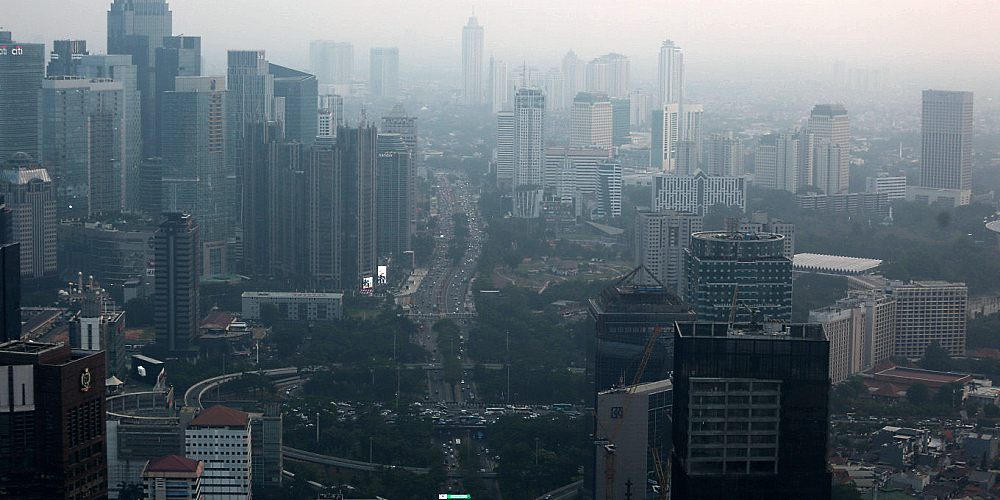Employers are urging the government to refrain from mandating a work from home (WFH) policy to curb pollution in the Greater Jakarta area.
Businesses saw the proposed policy as unsustainable and warned that it might do more harm than good, citing the risks of slower economic growth and lower productivity.
Jakarta has been among the most polluted cities in the world for the past several weeks, according to the Air Quality Index (AQI) ranking by Swiss air quality tech company IQAir.
President Joko “Jokowi” Widodo, who called the condition “very, very bad”, has asked for several solutions that include reviving remote working policies, which the country abandoned after the pandemic.
“If needed, we have to be brave in encouraging offices [in Jakarta] to do hybrid working, [some employees] work from office while [others] work from home,” Jokowi stated during a meeting in the State Palace on Aug. 14.
Ministers conducted a meeting on Friday, which resulted in a decision to mandate that civil servants work from home, Transportation Minister Budi Karya Sumadi told reporters.
However, Coordinating Maritime Affairs and Investment Minister Luhut Pandjaitan said in a statement on Friday that the government would also require firms to reduce their working hours to curb traffic congestion and reduce pollution.

Shinta W. Kamdani, chairwoman of the Indonesian Employers Association (Apindo), responded to the proposal by saying that air pollution requires a sustainable countermeasure, rather than a temporary and reactive one.
“[The WFH arrangement] is not sustainable and does not completely solve the air pollution problem in Jakarta,” she said in a statement on Monday.
Shinta opined that remote working cannot be implemented in all business sectors because some workers, such as those who work in factories, still need to be in their workplaces to support production.
More comprehensive research is needed, Shinta said, adding that there are still many possible sources of pollution, such as illegal trash burning, transportation emissions, industrial excess and a long dry season.
The Jakarta branch of the Indonesian Chamber of Commerce and Industry (Kadin) expressed their wariness of the remote working policy, calling it “not the best solution”.
The association explained that the remote working policy would impact the business of its members, especially food industry players.
“They would feel the effect first, as they usually serve public servants who go to the office,” Kadin Jakarta chairwoman Diana Dewi said in an interview with CNBC Indonesia on Monday.
Furthermore, Diana said that remote working policies may also affect the efficiency of public services in the government such as processing licences for business owners.
According to her, experience during the pandemic showed that WFH arrangements were often used by public servants as an excuse to not do their best work.
“Is it possible for the supervisor to control [such behaviours]? […] We hope the government will revisit the policy to decide whether it is wise or not. If not, we will be the ones who bear the losses,” Diana stated.
Acting Jakarta Governor Heru Budi Hartono tried to calm the situation by saying the remote working policy would only be mandatory for civil servants and optional for private sector employees.
He also assured there would be no punishment for companies that do not implement hybrid working policies.
“No, no [punishments]. They are doing their business and we must keep that in mind so they can keep operating. Everyone is already an adult, [they can] organise themselves,” Heru told reporters on Sunday, as quoted by Kompas TV.
He also added that the hybrid working policy was not just to tackle pollution, but also to reduce traffic congestion during the upcoming Asean Summit in early September.
Jakarta Communication, Information and Statistics Agency head Sigit Wijatmoko on Wednesday assured the remote working policy would not affect public services.
“The arrangement will only apply to employees who don’t serve the public directly,” Sigit said.
“We’ll make sure the remote working system won’t affect public services.”
ADVERTISEMENT
ADVERTISEMENT








































